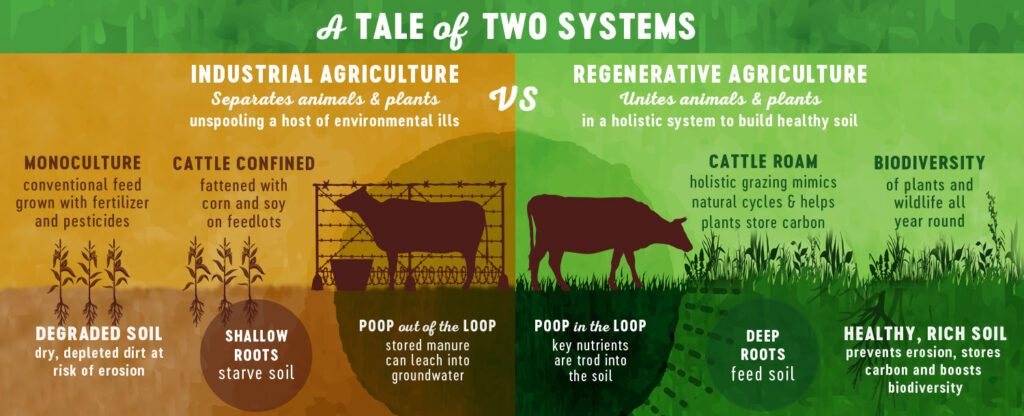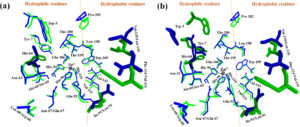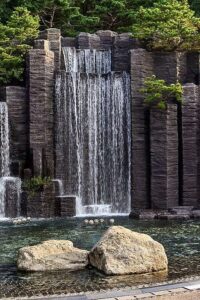
INSPIRATION
Conventional farming practices lead to long-term erosion and crusting of soil. Often, the plowing, tilling, and overgrazing don’t allow much time for the soil to revive before the next cropping season. Regenerative agriculture, on the other hand,causes minimal soil disturbance while focusing on improving
soil biodiversity and topsoil revival. It involves different practices like no-till farming, reduced tillage, crop rotation, and more. For example, cover crops are planted to cover the soil between cropping seasons to restore soil fertility. Further,regenerative farming facilitates fields to act as a carbon sink through sequestration. This leads to fewer carbon emissions into the atmosphere and a lesser negative impact on climate change.
Freesoil is a Dutch startup that develops high-quality plantbased compost extract for the soil. Once the compost extract is applied to the soil, it is naturally selected by the plants, and this ensures its applicability to multiple crops. They also add microorganisms to the soil on a regular basis. This enhances
the symbiosis between plants and microbes and ultimately leads to nutrient-rich soil. Thus, their solution enables plants to grow in healthier soil, making them more resilient to diseases.
Canadian startup Acterra specializes in fermentation technology for composting, seed, soil, and residue treatments.They develop a compost additive that accelerates matter breakdown, reduces the need for chemical fertilizers, and also enriches the existing manure with nutrients. Moreover,their method sequesters carbon into the soil making it a sustainable solution.




